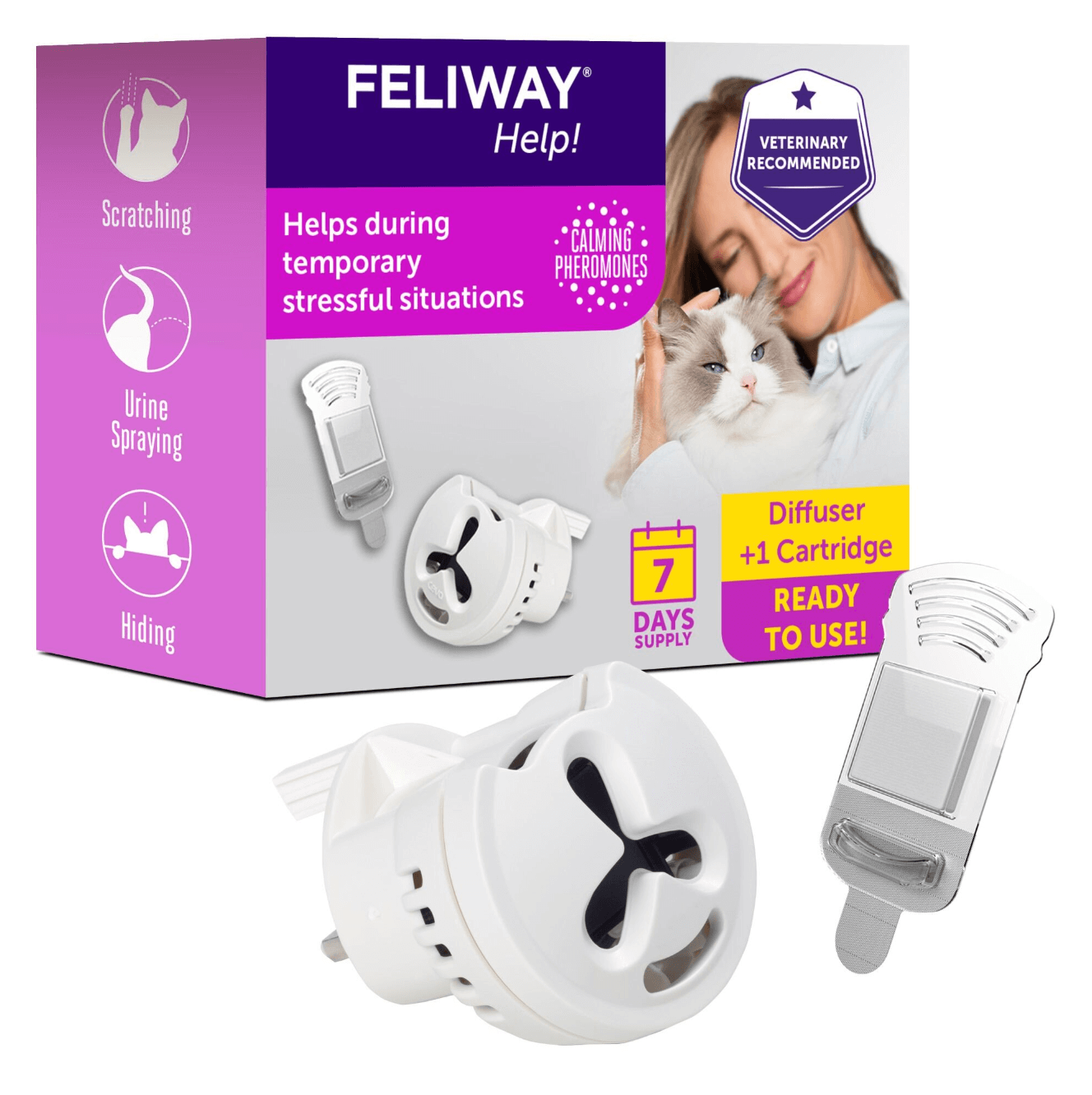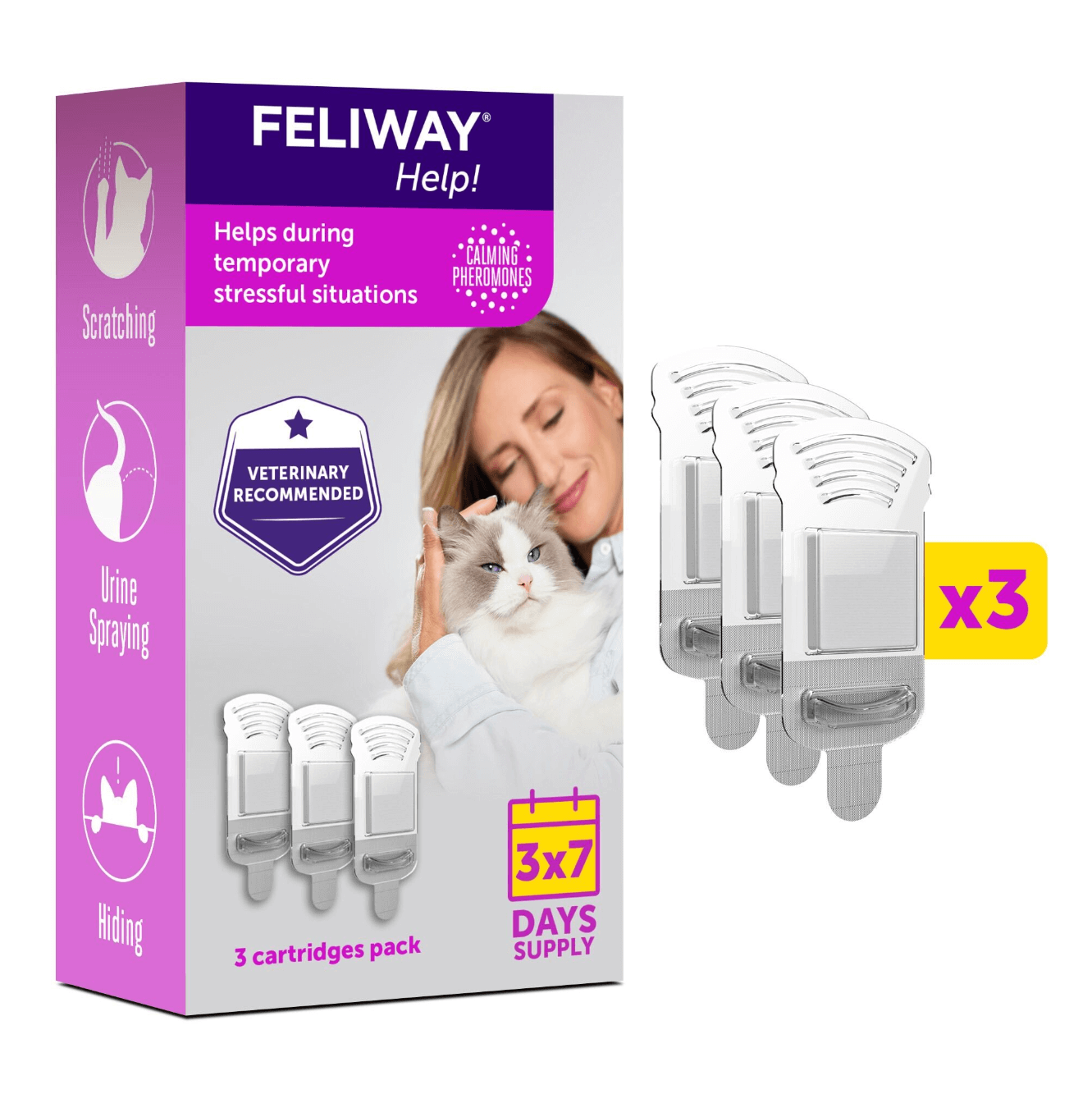Moving Furniture? Watch Out For Kitty Stress!
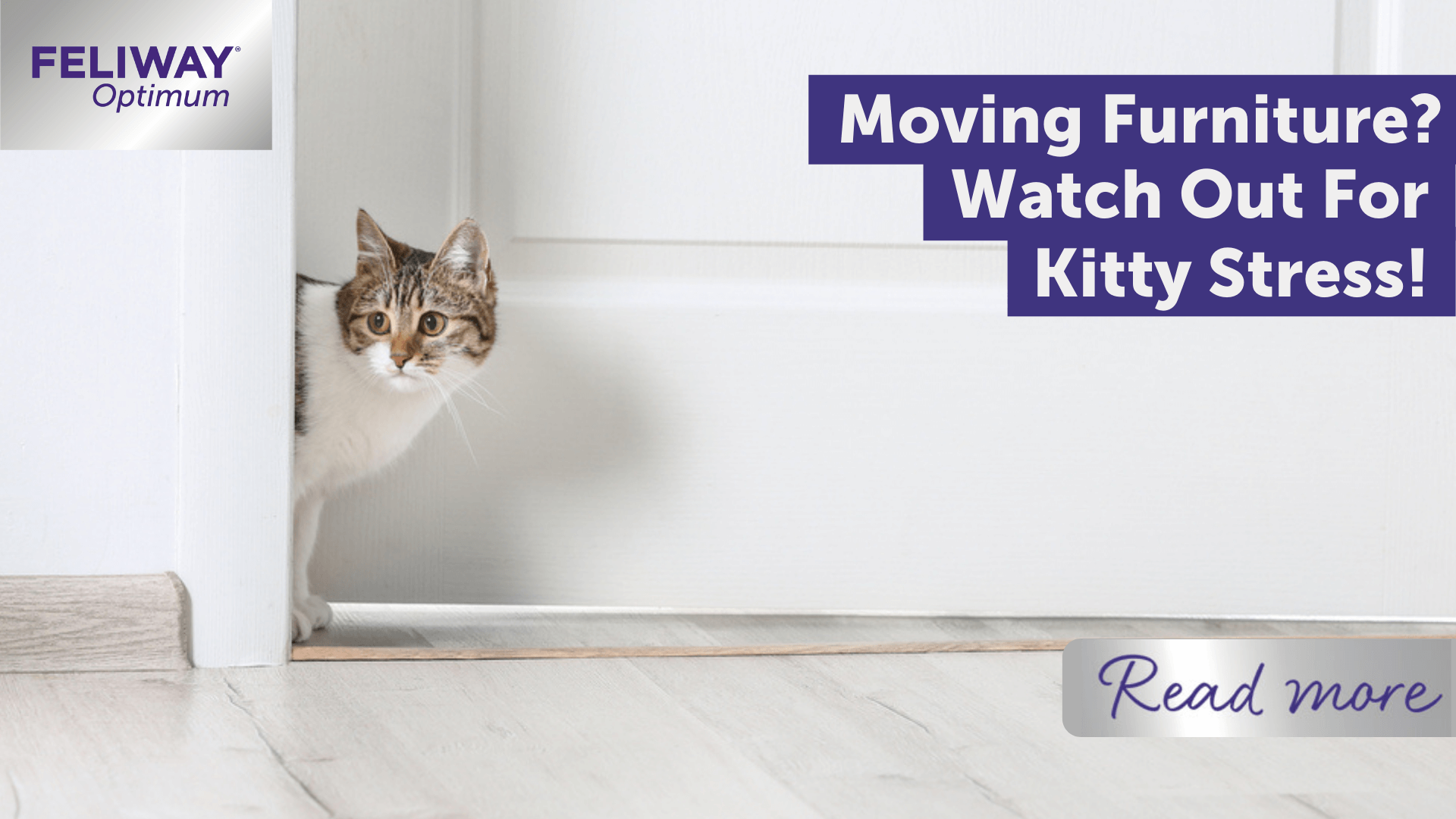
Cats are not like humans - they like everything to stay in the same place and to have the same routine every day - so they can get stressed if we humans move things around! They are quite good at hiding their stress, but they can be very sensitive to change and can become anxious which could lead to stress related problems, both emotionally and physically.
So keep an eye on your cat and look out for signs of anxiety in cats, like losing their appetite, urinating outside the litter tray or hiding away, and try to find out what is disturbing them and do your best to resolve it.
Why Is My Kitty Stressed?
Cats are very sensitive to new smells, new people, noise and in fact, any changes to their normal routine. So if you are planning to do something out of the norm at home, like moving furniture, decorating, or having a party, consider your kitty and keep them in mind when making your plans.
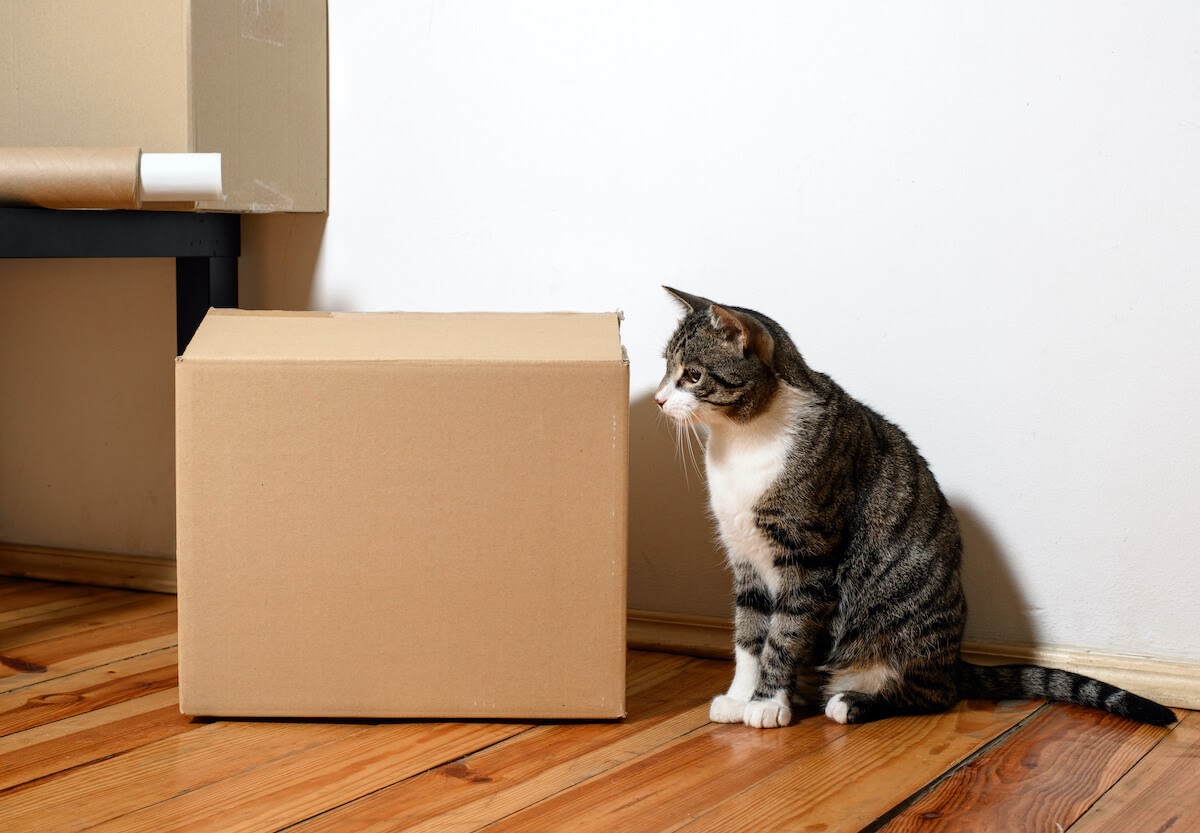
What Do I Need to Consider When Making Changes Around the Home?
Think about your cat's routine. Where is their bed situated, do they have a favourite spot where they take their nap, have they got a 'secret' hiding place?
If you are moving furniture around the house, try to ensure that all of these things are still available for your kitty. It may be something simple like making sure their favourite cushion is still in the same sunny spot or that their litter tray is not moved to the other side of the room.
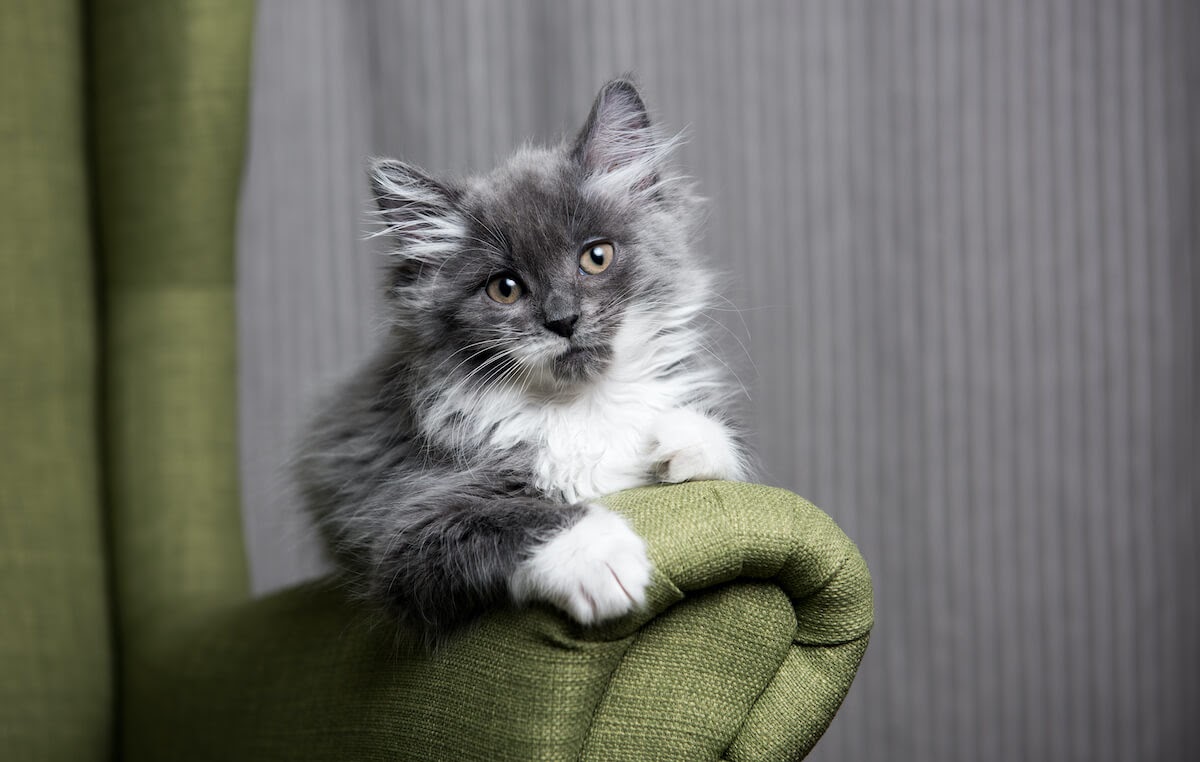
How to Minimise Kitty Stress
We're not saying that your cat should rule the roost and you should never change things around in your new home, but if you need to make changes that will affect them, here are a few tips that will help your kitty adjust with you:
- If there's going to be a lot of disruption whilst you are moving furniture or decorating, try and keep your kitty in a different room whilst the changes are being made, with all of the resources they'll need. If possible, make changes gradually - don't just move everything all at once or they will get confused. Make the changes gradually over a period of time so that your kitty has longer to adjust.
- If their resources (like their bed, food bowls, litter tray etc.) are being relocated, try putting additional resources in a new location (without moving the original ones) and let them get used to both. You can then remove the original ones without them noticing too much - and they'll know where they need to go to eat, drink, scratch their posts, nap or use the litter tray.
- Let them explore the new changes slowly and in their own time. They will take time to wander around and smell new furniture and leave their scent. However, do be careful that they don't return in order to scratch the furniture - this can sometimes happen when a cat wants to leave its scent on a new item. Placing a scratching post near to the furniture can help your kitty redirect their claws!
- Make sure they still have a safe haven (often a high shelf, or under a bed) that they can retreat to.
- Try and keep a cushion or a blanket that they are comfortable with, nearby or on the new furniture. This will hold familiar smells for them and make them more at home with the changes.
- If you have an outdoor cat, they will have the opportunity to escape outside if they are feeling anxious about all the changes happening in the home. Here, they will find lots of things to keep them entertained, and their normal hiding places they watch the world from as well as a comfortable spot or two to lie in the sun. However, make sure that when they come back indoors they have access to their normal resources.
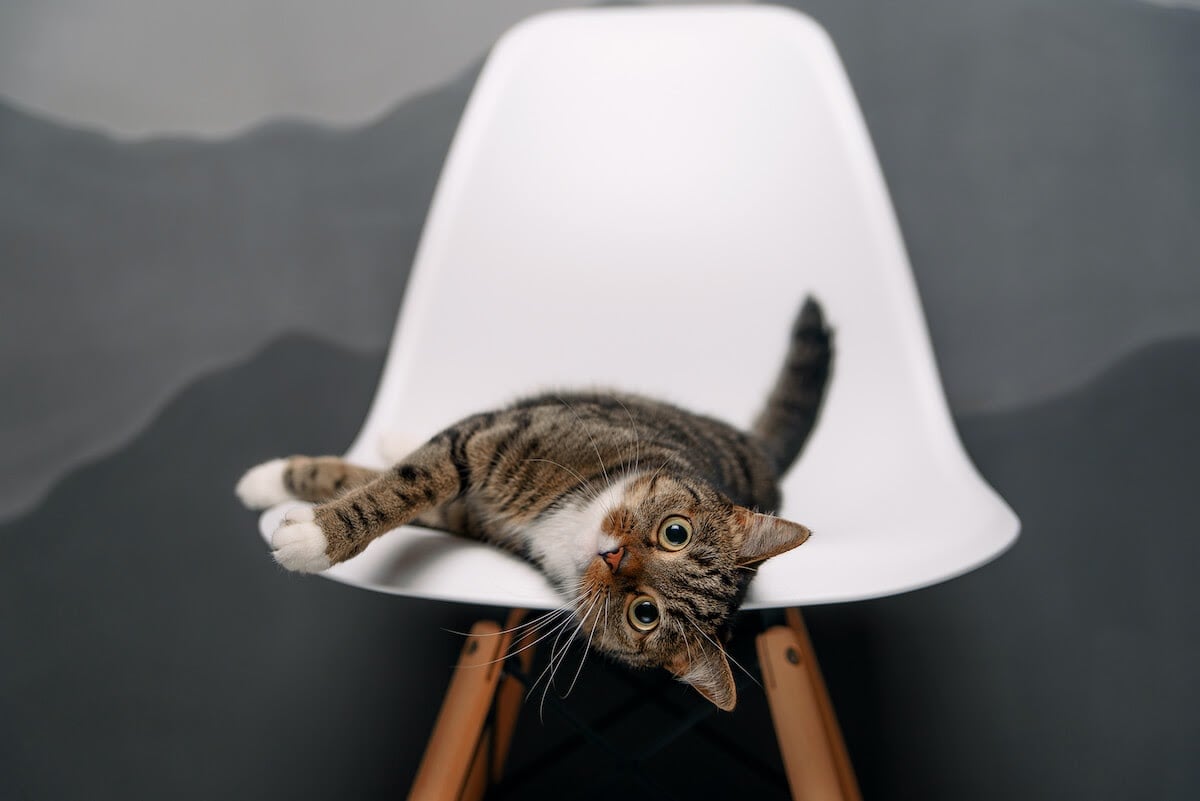
FELIWAY Help! can provide 7 days of happy messages to support your cat in any short time changes like changing furniture. If you need longer term effects, FELIWAY Optimum can help your cat to provide a reassuring environment in the area they spend most time in.













